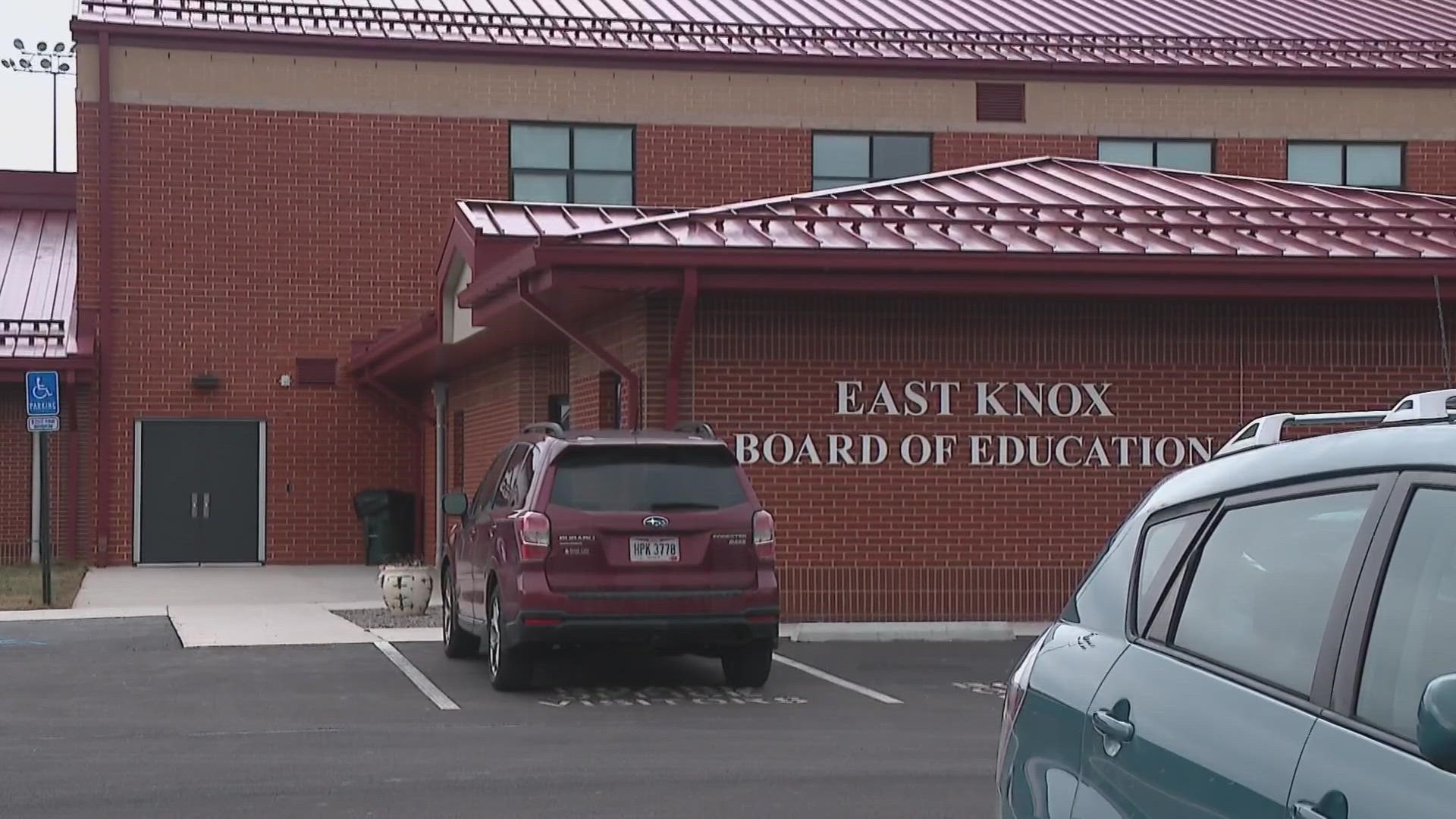COLUMBUS, Ohio — To those in attendance, a December gathering could have sounded more like a sermon than a public school board meeting.
It happened in the East Knox Local Schools, with Pastor Matt Schwartz, who also is a board member, speaking to the crowd.
He can be heard in a recording obtained by 10TV.
“I remind us all we’re going to be judged by the word of God, not by popular opinion, not by the government,” Schwartz can be heard saying on the recording. “We’re going to all stand before God. You may or may not disagree, or agree, with me. You may think that God doesn’t exist. That’s okay, that’s your right to think that. But you’re still subject to him.”
That recording was sent to the Freedom From Religion Foundation, which sent a letter to the board president this week.
“A concerned member of the East Knox Local School District community contacted us to report that over the past several months, local board member and pastor Matt Schwartz has been using his position to engage in unconstitutional prayer and preaching at board of education meetings,” the letter said. “It is our understanding that school board meetings regularly open with prayer, and that Mr. Schwartz also gave additional comments targeting a particular student.”
Annie Laurie Gaylor, co-founder and co-president of FFRF, said prayer at public meetings is a common complaint to her foundation. She added that it’s a “no-brainer” that prayers should not happen at public school board meetings, citing legal precedent in Ohio.
The following citation was included in the letter to the board.
It is beyond the scope of a public school board to schedule or conduct prayer as part of its meetings, and for a board member to preach at meetings while serving in his official capacity at that meeting. These practices violate the Establishment Clause of the First Amendment. See FFRF v. Chino Valley Unified Sch. Dist. Bd. of Educ., 896 F.3d 1132 (9th Cir. 2018), petition for review en banc denied, No. 16-55425 (9th Cir., Dec. 26, 2018); Doe v. Indian River School District, 653 F.3d 256 (3d Cir. 2011), cert. denied, 132 S. Ct. 1097; Bacus v. Palo Verde Unified Sch. Dist., 52 Fed. Appx. 355 (9th Cir. 2002); Coles v. Cleveland Bd. of Educ., 171 F.3d 369 (6th Cir. 1999).
“Prayer is coercive, it’s embarrassing, it’s divisive, and that many parents and students have reasons to go before their school board, and they should not be subjected to prayer, but it’s just the wrong direction because religion has nothing to do with our public schools,” Gaylor said. “That’s left to the parents.”
10TV reached out to East Knox Local Schools Superintendent Steve Larcomb for comment on the letter. He said these concerns already have been discussed, calling it a non-issue.
“We’ve since addressed that and said that, and the board we’ve talked, and the board’s talked internally and said, you know, we shouldn’t have prayers as part of the public meeting, and all have agreed not to do that again,” Larcomb said.
The FRFF also raised concerns in its letter about referencing religion while discussing gendered dress codes, citing another comment from Schwartz in the recording.
“I have said last week that I have advised them on Proverbs, or last month, the Proverbs, I train the child the way he should go, and then I also talked about men wearing women’s apparel, and it’s an abomination to the Lord,” Schwartz could be heard saying in the recording.
And while the FFRF letter references a specific student being singled out for negative attention, the superintendent told 10TV no students were ever called out by name.
“We don’t talk about individual students, and I don’t believe the board member was talking about individual students when he was making a general statement about his beliefs, his religious beliefs, and the way he runs his life,” Larcomb said.
But Gaylor is strong in her stance that there needs to be a change on the board, calling for Schwartz to be asked to resign.
“It is unacceptable and ridiculous to cite the Bible as if it is the controlling law in our public schools,” she said. “We are not a theocracy, and we are a secular republic, and people have rights.”
In its letter, the FRFF calls on the board members to “refrain from scheduling prayers” at future meetings and to “cease using their position to preach their religious beliefs” during board meetings.
Larcomb said the district will respond to the FRFF, again reiterating that this is now a non-issue.
Gaylor said this is how these issues are normally resolved but added that the FRFF is ready to take legal action, if necessary.
10TV also reached out to the Ohio School Boards Association for comment on the legality of prayer at public school board meetings.
The OSBA sent this statement:
OSBA advises school boards to consult with their legal counsel when considering prayer at school board meetings. In 1999, an Ohio federal court held that prayer at a school board meeting was an unconstitutional practice (Coles v. Cleveland Board of Education). However, since that decision was rendered, there have been two U.S. Supreme Court decisions regarding prayer and public agencies. In the first, the court found that prayer offered at the opening of a town council's meetings did not violate the U.S. constitution (Town of Greece v. Galloway). The second Supreme Court case, decided last year, involved prayer by a school employee rather than prayer opening a meeting (Kennedy v. Bremerton School District). However, in that case, the court rejected the constitutionality test that was used by the federal court in the Coles decision and instituted a new test in its place. Because this is a developing area of the law, school boards should consult with legal counsel before moving forward.
10TV did reach out to Schwartz and the school board president but did not hear back from either.

